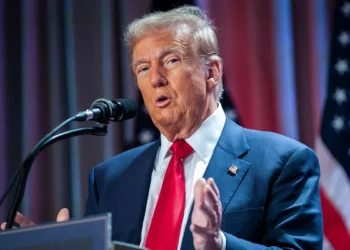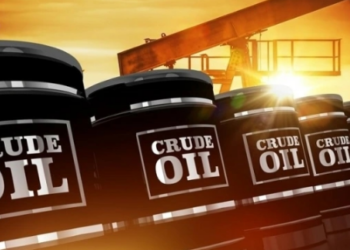Oil prices finished higher on Wednesday, with help attached to progress made on vaccines for COVID-19.
There is also renewed hope for oil prices as backwardation in the oil markets and OPEC+ production cuts prop up the markets despite the coronavirus cases that keep rising worldwide.
Brent oil rose to as high as $48.90. Also, West Texas Intermediate rose as high as $46.20 a barrel on the New York Mercantile Exchange.
“Optimism around vaccine developments continues to buoy sentiment, despite the current lockdowns that we are seeing across Europe, and with the numbers of U.S. COVID-19 cases now passing the 12 million mark,” said Warren Patterson, Head of Commodities Strategy at ING.
READ: Mike Adenuga: The journey from petty trade to Conoil and Glo
This rise in Oil, moved prices to their highest price since March, after AstraZeneca also declared a great update to the advancement of its COVID-19 vaccine.
The drugmaker in a joint effort with the University of Oxford – said its vaccine was 70% powerful at preventing COVID-19 in a preliminary trial of about 20,000 volunteers.
AstraZeneca’s vaccine progress denotes the third sure vaccine from organizations after Moderna inc., Pfizer and BioNTech, are hurrying to put up a reasonable drug for sale to the public.
In any case, possibilities for an immunization are needed ahead of a potential third wave of the COVID-19 virus. The US recorded more COVID-19 cases this week as indicated by the COVID Tracking Project.
READ: Investment bank with over $35 billion assets plans investing in bitcoin
Backwardation
Another reason why prices are rising is because of what traders call Backwardation. Oil prices are historically bullish when backwardation occurs in the markets. It is a situation where traders no longer have an incentive to store oil and sell it later.
Right now, they are selling it because prices could be lower in the future. The demand from Asia also makes the market feel balanced now.
When the current price of oil is higher than prices trading in the futures market, traders sell live barrels and buy oil futures contracts, which leads to a convergence of both prices.
This can occur because of a higher demand for oil than the contract in the futures market. Traders use backwardation to make a profit, by selling short at the current price and buy at the lower futures price.
OPEC+
To bring support to prices, OPEC+ and partners including Russia will expand the span of their production cuts when they meet soon, to balance frail demand over the winter months.
Recall, OPEC+ cut production in April, as oil demand imploded during lockdowns. Though there were talks about returning about 2m barrels a day of production to the market in January 2021, there is a strong possibility that they will postpone the return of these barrels.
READ: CBN launches Private Sector-led Accelerated Agriculture Development Scheme
Goldman said it expects OPEC+ to delay its planned 2 million bpd January production ramp-up for three months, citing coordinated measures to curtail output as “the optimal near-term action,” according to their experts.
There was a lot of purchasing demand, which has pushed prices to this level. This was overshadowed, as there is a worry over worldwide demand, as COVID-19 flare-up proceed far and wide. Prices were likewise increased by information demonstrating a bounce back in China, Japan and other Asian buyers.
The gathering, known as OPEC+, has been cutting production by about 7.7 million barrels every day (bpd), with compliance seen at 96% in October, and had wanted to maintain cuts by 2 million bpd from January.
OPEC+ is set to hold a meeting on Tuesday that could prescribe changes to production cuts when all the members meet on Nov. 30 and Dec. 1.
READ: Gold prices under pressure, U.S dollar ticks up
“There is no denying that the oil market is fully in the hands of OPEC+,” said Bjarne Schieldrop.
The organisation is the only reason why oil prices today are not $20 a barrel. As such, their upcoming meeting on Nov 30-Dec 1 is hugely important.
Nigeria, however, wants to increase production and their quota as the revenue of the country dwindles with foreign currencies getting scarcer.
The more production means Nigeria would be able to make more oil sales. Hopefully, the meeting would give more room for Nigeria to increase its quota.






















